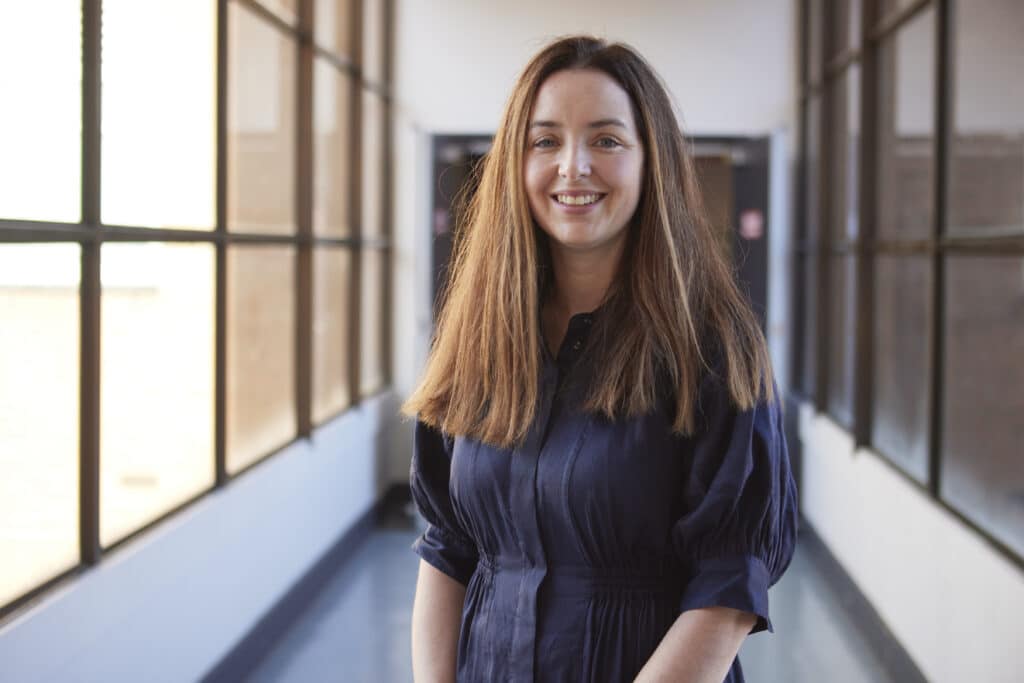- Research
- 2022-2026 Research Strategy
- Open Clinical Trials
- Closed Clinical Trials
- What is a Clinical Trial?
- Why Participate in a Clinical Trial
- Remote Telehealth Pre-Screening Process
- Research Achievements
- Publications
- Research Development and Funding
- Participating Institutions
- International Collaboration
- BCT Trials & Projects Summary
- Translational Research
- Clinical Fellowship Program
- International Fellowship Support
- Annual Scientific Meeting
- Travel Grants and Awards
- About
- Our Impact
- Fundraise
- Donate
- Researcher Login
- Cart
What is the Breast Cancer Trials (BCT) Clinical Fellowship Program?
Developing new research ideas and supporting the next generation of researchers is at the heart of the new Clinical Fellowship Program.
The Program is aimed at early career researchers, who have a high-level interest in clinical research and qualifications in the disciplines of medical oncology, pathology, psychology and other supportive care specialities, radiation oncology, radiology or surgery.
Fellows work on projects that are directly relevant to Breast Cancer Trials (BCT) that potentially involve:
- Research areas of future trials including background and pilot work;
- Work on existing or future BCT clinical trials;
- Further analysis of data from existing trials; and
- Participation in trial meetings to drive the research as directed by our strategy.
This is the second year of the program and two Clinical Fellows from 2022 are continuing in 2023 and two new Fellowships in surgery were awarded:
Dr Adam Ofri (Surgeon)
Project 1 – Reducing the Side Effects of Surgery
Patients with axillary node positive breast cancer are often treated with neoadjuvant chemotherapy (treatment before surgery) and conventional axillary dissection. However, many patients experience arm morbidity and reduced quality of life with this approach and new research suggests that less radical surgical strategies may improve patient outcomes. This study will ascertain the safety and efficacy of targeted axillary dissection (TAD) as an alternative to conventional axillary dissection, in patients who undergo neoadjuvant chemotherapy. It will also collect data on breast cancer patients to help establish a new registry specifically focused on TAD treatment.
Project 2 – Identifying Patients Who May Be Able To Avoid Radiation Therapy
The development of biologic signatures to assess recurrence risk for invasive breast cancer initially and later DCIS have been developed over time. A new combined clinical and genomic risk assessment test recently available in Australia is DCISionRT. This test prognosticates the 10‐year risk of DCIS recurrence or invasive breast cancer (IBC) developing, with or without radiation therapy. If we confirm the efficacy and impact of DCISionRT in tailored patient care, we could identify those that can avoid unnecessary radiotherapy, whilst identifying those at higher risk than initially presumed and provide beneficial RT. There have been multiple validation studies for DCISionRT, including a Melbourne based study, all showing impressive outcome prediction even when counter intuitive based on standard van Nuys type criteria [8, 9].
Currently, DCISionRT is only available for patients receiving therapy at one private RT company. In the Australian environment for the test to become widely available and funded, following on from the lack of success in Oncotype DX being MBS funded, a randomised trial (RCT) showing improvements in outcome for test users is likely to be necessary. The proposed outcome is development of a BCT‐led randomised control trial study protocol to evaluate the safety and efficacy of using DCISionRT in patient management decision making.
Click here for more information or to listen to our podcast with Dr Ofri.
Dr Julia Matheson (Surgeon) – Assessing the Patient Experience of Undergoing MRI
This project will continue work on the existing clinical trial called the Breast MRI Evaluation Study, which aims to establish when MRI’s improve patient outcomes and when it does not. The main focus of this Clinical Fellowship will be assessing the participant experience of undergoing MRI using patient reported outcome measures (PROMs).
The hypothesis is that having a breast MRI will influence patient preferences for surgery, satisfaction with decision making and confidence in treatment. Whilst patient experience of MRI will be the key focus, we anticipate this fellowship would also provide the opportunity and time to report on other study objectives.
Click here for more information or to listen to our podcast with Dr Matheson.
Dr Christine Muttiah (Medical Oncologist) – Improving Recruitment to a World-First Trial
The BRCA-P clinical trial is a world-first study that aims to prevent breast cancer in women who carry the BRCA1 gene mutation. Dr Muttiah will assist in the clinical conduct of this study, to enable sites to develop and establish recruitment pathways through familial cancer and risk management clinics.
The project will also provide preliminary interpretation/report on results from translational research sub-studies.
Click here for more information or to listen to our podcast with Dr Muttiah.
Dr Michelle Sinclair (Psycho-Oncologist) – Easing the Fear of Breast Cancer Recurrence
Approximately 70% of women experience moderate to high levels of fear of cancer recurrence (FCR) and up to 15% experience severe, disabling FCR characterised by constant, intrusive thoughts about cancer; interpretation of mild, unrelated symptoms as a sign of recurrence; a belief that cancer will return regardless of actual prognosis; and an inability to plan for the future due to cancer worry.
FCR is a routine reason for seeking professional clinical support and is associated with psychological distress, poorer social and occupational functioning, and increased health care costs.
This study will provide useful exploratory data from the PROSPECT clinical trial, about the association between therapy de-escalation by omitting radiation therapy and FCR. It will also examine FCR and quality of life in women with DCIS.
Click here for more information or to listen to our podcast with Ms Michelle Sinclair.

